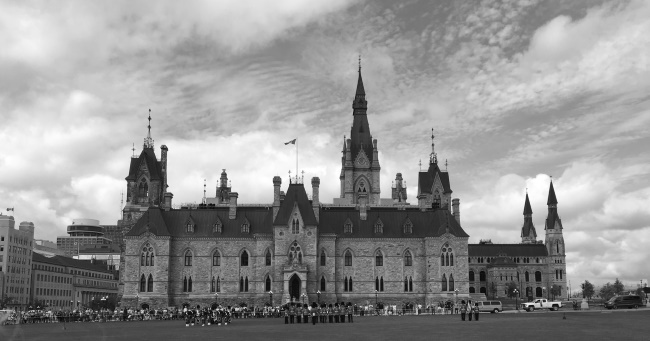
Highlights from the Speech from the Throne
November 23, 2021
Earlier this afternoon, Governor General Mary Simon delivered the Speech from the Throne, setting out the Government of Canada’s priorities for the First Session of the Forty-Fourth Parliament of Canada.
Below are some highlights of interest to the Canadian library and information management community:
Anti-Racism
When someone in our country is targeted because of their gender, or who they love, or where they come from, the way they pray, the language they speak, or the colour of their skin, we are all diminished.
Everyone should be – and feel – safe.
The Government will continue combatting hate and racism, including with a renewed Anti-Racism Strategy.
Canadians understand that equity, justice, and diversity are the means and the ends to living together.
Fighting systemic racism, sexism, discrimination, misconduct, and abuse, including in our core institutions, will remain a key priority.
This is the moment to rebuild for everyone. The Government will continue to invest in the empowerment of Black and racialized Canadians, and Indigenous Peoples. It will also continue to fight harmful content online, and stand up for LGBTQ2 communities while completing the ban on conversion therapy.
Child Care
The Government will also continue building the first-ever Canada-wide early learning and child care system. By the end of 2022, average fees for regulated child care will be cut in half in most of the provinces and territories. And in some places, this will even happen as early as the start of the year. Families will save thousands of dollars.
Four jurisdictions have not yet reached agreements on child care. Two are territories with unique infrastructure challenges, and the Government will keep working together to ensure we meet the needs of the North. The Government will continue working with the remaining two provinces to finalize agreements that will deliver $10-a-day child care for families who so badly need it.
Investing in affordable child care – just like housing – is not just good for families. It helps grow the entire economy.
Digital
To support Canadian culture and creative industries, the Government will also reintroduce legislation to reform the Broadcasting Act and ensure web giants pay their fair share for the creation and promotion of Canadian content.
Reconciliation
I would like to acknowledge that we are gathered on the unceded territory of the Algonquin Anishinabe people.
This land acknowledgement is not a symbolic declaration. It is our true history. In each of your own ridings, I encourage you to seek out the truth, and to learn about the lived realities in First Nations, Inuit and Métis communities. Although each community is distinct, we all share a desire to chart a way forward together towards reconciliation.
The discovery of unmarked graves of children who died in the residential school system shows how the actions of governments and institutions of the past have devastated Indigenous Peoples and continue to impact them today. We cannot hide from these discoveries; they open deep wounds.
Despite the profound pain, there is hope.
There is hope in the every day. Reconciliation is not a single act, nor does it have an end date. It is a lifelong journey of healing, respect and understanding. We need to embrace the diversity of Canada and demonstrate respect and understanding for all peoples every day.
Already, I have seen how Canadians are committed to reconciliation. Indigenous Peoples are reclaiming our history, stories, culture and language through action. Non-Indigenous Peoples are coming to understand and accept the true impact of the past and the pain suffered by generations of Indigenous Peoples. Together they are walking the path towards reconciliation.
We must turn the guilt we carry into action.
Action on reconciliation.
This year, Canadians were horrified by the discovery of unmarked graves at former residential schools.
We know that reconciliation cannot come without truth. As the Government continues to respond to the Calls to Action, it will invest in that truth, including with the creation of a national monument to honour survivors, and with the appointment of a Special Interlocutor to further advance justice on residential schools.
To support communities, the Government will also invest significantly in a distinctions-based mental health and wellness strategy, guided by Indigenous Peoples, survivors, and their families.
Everyone in our country deserves to be safe.
That is why the Government will accelerate work with Indigenous partners to address the national tragedy of Missing and Murdered Indigenous Women, Girls and 2SLGBTQQIA+ People.
The Government will also make sure communities have the support they need to keep families together, while ensuring fair and equitable compensation for those harmed by the First Nations Child and Family Services program.
Reconciliation requires a whole-of-government approach, breaking down barriers, and rethinking how to accelerate our work. Whether it is eliminating all remaining long-term drinking water advisories or implementing the United Nations Declaration on the Rights of Indigenous Peoples, the Government is committed to closing the gaps that far too many First Nations, Inuit and Métis communities still face today.
(Via Government of Canada)
Add a new comment